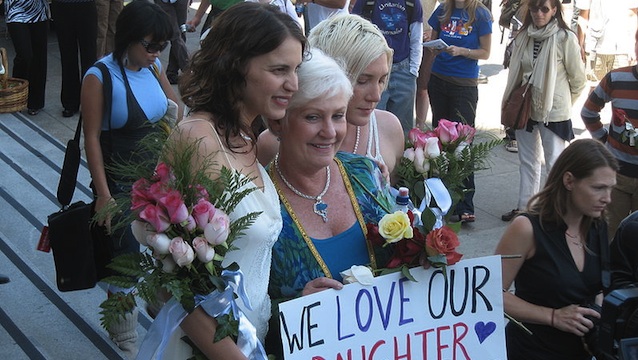In 1868, three years after slavery was abolished, the 14th Amendment to the U.S. Constitution was adopted, granting equal protection under the law to every born and naturalized U.S. citizen. For CNN news commentator Van Jones this amendment is, in his words, the “whole enchilada.” It’s not the most popular amendment—it doesn’t get name-dropped in TV courtroom dramas, or fiercely debated before elections—but to Jones it is a weighty principle that was far ahead of its time. “It doesn’t say equal protection under the law unless you’re a lesbian. That’s not what it says. It doesn’t say equal protection under the law unless you’re African American. That’s not what it says. It says if you’re in the jurisdiction you get equal protection under the law. That’s radical. In 10,000 years of human history, that’s radical.” Van Jones is the author of Beyond the Messy Truth: How We Came Apart, How We Come Together.
Van Jones: This is the 14th Amendment of the Constitution. I’m not going to read the whole thing, I’m just going to read the first section: 'All persons born or naturalized in the United States and subject to the jurisdiction thereof, are citizens of the United States and of the State wherein they reside. No State shall make or enforce any law which shall abridge the privileges or immunities of citizens of the United States; nor shall any State deprive any person of life, liberty, or property, without due process of law; nor deny to any person within its jurisdiction the equal protection of the laws.'
Any person within its jurisdiction cannot be denied the equal protection of its laws. To me, the 14th Amendment, especially this idea of equal protection under the law, is the whole enchilada—for me. First of all, when you talk about protection that implies that there must be a harm someplace that you’re trying to protect someone from. That opens a door to have a whole discussion about reality. A lot of this stuff floats above reality, it’s all abstract principle, but to have equal protection under the law means that you’re going to have some permission for some activism from the government. You’re going to have some permission to talk about inequality, unequal treatment, unfair treatment for—they were contemplating African Americans—but they say everybody.
So it doesn’t say equal protection under the law unless you’re a lesbian. That’s not what it says. It doesn’t say equal protection under the law unless you’re African American. That’s not what it says. It says if you’re in the jurisdiction you get equal protection under the law. That’s radical. In 10,000 years of human history, that's radical. And I think it's very, very important that we uphold the 14th Amendment. We talk about the First Amendment, we talk about the Second Amendment, we talk about sometimes the Fifth Amendment, but we don't talk about the 14th Amendment enough. Equal protection under the law.






